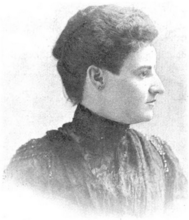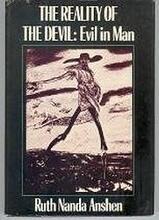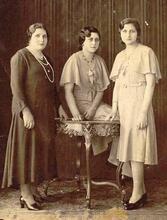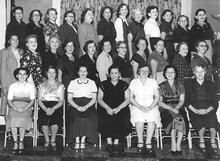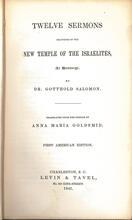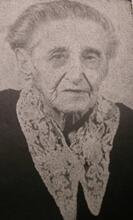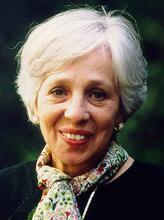Norma Fields Furst
Norma Fields Furst used her positions of authority at different colleges and universities to garner support for civil rights and gender equality within academia. She taught English for a year at Harcum Junior College before becoming professor of psychoeducational processes at Temple University from 1973–1983, in addition to serving as Temple’s dean of students. In 1983, she became president of Harcum Junior College, and from 1992–1994 she served as president of Baltimore Hebrew University. At each of these schools, Furst worked to support minority students and push for their greater inclusion in academia. She also served as editor for two educational journals and worked for a number of Jewish causes, including the Jewish Publication Society and the International B’nai B’rith Hillel Commission.
Article
Norma Fields Furst’s family believes that she was happiest when she served as president of Baltimore Hebrew University because the post allowed her to combine her talents as an educator with her commitment to Judaism.
Norma Fields was born in Brooklyn, New York, on February 26, 1931, the only child of Nathan B. and Anne (Cooper) Fields. Her parents divorced in 1941, and her mother later married Jerry Platzer. Norma’s maternal grandparents, Menachem Mendel and Jenny (Shayndl) Cooper, were Polish emigrés who emigrated to the United States to secure a better education for their children. Growing up in the Coopers’ Orthodox Brooklyn home, Norma inherited their commitment to higher education, the Jewish people, and Jewish values. However, she rejected The legal corpus of Jewish laws and observances as prescribed in the Torah and interpreted by rabbinic authorities, beginning with those of the Mishnah and Talmud.halakhah until her daughter wanted an observant home.
She graduated from public high school at age sixteen and graduated Phi Beta Kappa from Brooklyn College in 1951, with a B.A. cum laude in English. On September 9, 1951, she married M. Lawrence Furst. She worked as a research librarian at the New York Public Library (1950–1952) and as registrar to the Pakistan Mission to the United Nations (1952–1955). She pursued graduate studies at New York University, the University of Bridgeport, and Temple University. In 1963, Furst and her husband received master’s degrees from Temple, and in 1967, they earned their doctorate degrees, she in education and he in psychology. The Fursts had a son and a daughter, Merrick Lee and Laura.
Higher education was not merely a family priority; it also became Furst’s professional focus. She worked her way up from English teacher and guidance counselor at Harcum Junior College in Bryn Mawr, Pennsylvania (1962–1963), to professor of psychoeducational processes at Temple University’s College of Education (1973–1983). In addition to her teaching duties and extensive research, Furst served as Temple’s dean of students from 1974 to 1983. At Temple, Furst’s commitment to civil rights and equal opportunity was evident in her advocacy for and personal relationships with her students.
In 1983, Furst became president of Harcum Junior College. During her nine-year tenure she demonstrated her dedication to women’s colleges and to Jewish values regarding issues such as minority education and the environment. From 1992 to 1994, Furst served as president of Baltimore Hebrew University. Furst wrote several articles on education and served as editor for two educational journals. She devoted her time and energy to Soviet Jewry, the International B’nai B’rith Hillel Commission, the Jewish Publication Society, and dozens of other educational, Jewish, and community organizations. She received numerous awards for her teaching and humanitarian commitments, including the 1990 Louise Waterman Wise Award of the American Jewish Congress.
Norma Fields Furst died of lung cancer at her home in Wynnewood, Pennsylvania, on March 7, 1995. The Philadelphia educational and Jewish communities benefited from her untiring commitment to furthering education and freedom, and from her ability to forge a human connection with everyone she encountered.
Selected Works
“Interaction Analysis in Teacher Education: A Review of Studies.” In Interaction Analysis: Selected Papers (1971).
“The Multiple Languages of the Classroom: A Further Analysis and a Synthesis of Meanings Communicated in High School Teaching.” Ph.D. diss., Temple University (1967).
Jewish Exponent (April 26, 1974, April 9, 1976, July 2, 1976, March 21, 1980, August 14, 1981, March 4, 1983, April 1, 1983, November 11, 1983, November 25, 1988, November 30, 1990).
Obituary. NYTimes, March 14, 1995, B8: 1.
Who’s Who in the East (1992).
Who’s Who in World Jewry (1978).
Who’s Who of American Women (1993).
WWIAJ (1980).

